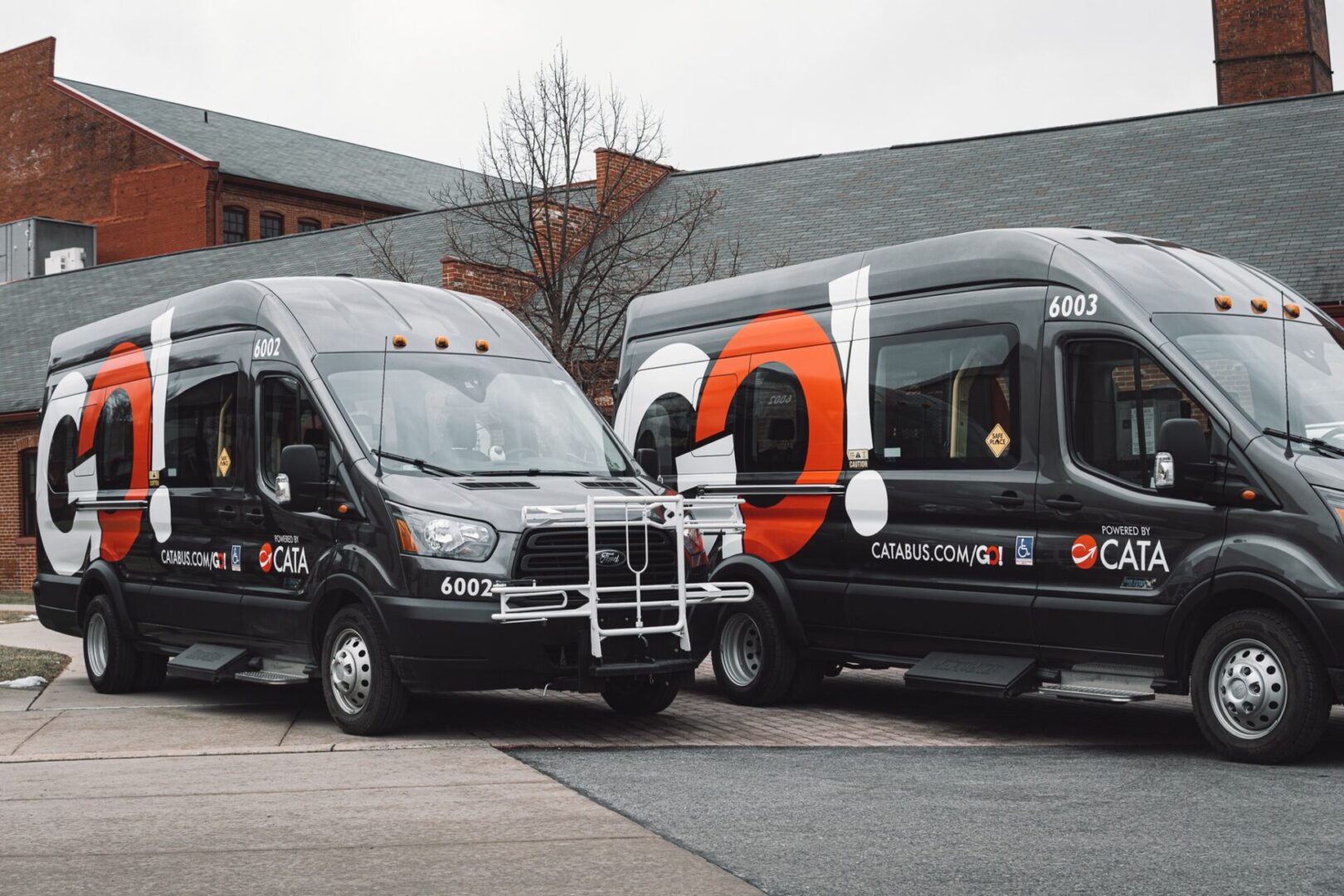The Centre Area Transportation Authority will hold a public hearing on the potential discontinuation or reduction of public transit services in the Bellefonte area resulting from local funding shortfalls.
The hearing will be held from 4:30 to 6:30 p.m. on Tuesday, Jan. 30, in the large meeting room on the first floor of the Armory Building, 301 N. Spring St., Bellefonte.
At issue is how much Bellefonte Borough, Benner Township and Spring Township are willing to pay for contracted CATAGo microtransit, CATARide paratransit and CATACommute vanpool services.
“These services have been very popular with passengers but are getting more expensive with growth. Unfortunately, they are operating at a significant financial deficit, which CATA cannot absorb,” David Rishel, CATA executive director and CEO, said in a statement.
CATA has been engaged in conversations with Spring Township since last April, when the township notified the agency it intended to withdraw from the CATA system at the end of the 2023-24 fiscal year on June 30, 2024, citing dissatisfaction with its local funding requirement.
At a Jan. 10 meeting, officials from Spring and Benner townships told CATA they “were unlikely to allocate additional funds to support this service beyond their FY 2024 levels,” while Bellefonte allocated an additional $5,000 above its current year funding, according to correspondence published on the CATA website.
“What it came down to is they aren’t comfortable providing any more funds into the system so we have estimated what we can do with the amount of money they can provide,” Rishel said at CATA’s Board of Directors meeting on Monday.
While fixed route bus route service to the three-municipality area has been eliminated over the past two years, usage of CATAGo — which provides residents on-demand rides within the service area and to connection points in State College — has exploded, according to the authority.
That has meant an increase in service, and costs, in the Bellefonte area.
When CATA began considering the CATA Go service in 2019, an analysis estimated two or three vans would be needed to meet demand in Bellefonte, Benner and Spring. As demand has continued to grow, it now operates five and sometimes six vans a day, six days a week, Rishel wrote in letters to the municipalities.
According to information provided to the municipalities, CATA absorbed a deficit of $378,713 in 2022-23 for the total cost of CATAGo and CATARide services provided to the three municipalities. The deficit will be similar for 2023-24.
If funding remains at current levels for the two townships, and with Bellefonte’s $5,000 increase, CATAGo would be reduced to three vehicles operating two hours in the morning and two hours in the afternoon in the area, according to CATA. It currently operates from 6 a.m. to 11 p.m. on weekdays and 6 a.m. to 8 p.m. on Saturdays.
“We anticipate that our new software system for CATAGO and some operational changes to the service will enhance our efficiency over the past 2‐3 trips per vehicle hour and may enable us to complete up to 4‐5 trips per vehicle hour, or 48‐60 trips per day throughout the entire CATAGO zone at this level of funding,” Rishel wrote in a letter to the three municipalities
Changes would also be made to fixed locations for pick-up and drop-off points in commonly served areas
CATARide — which provides door-to-door rides for persons over 65 or with disabilities— would be discontinued in the three-municipality area, and CATACommute services in Benner Township may also be eliminated.
And if any one of the municipalities were to withdraw from CATA, it would have a ripple effect on the others. For example, if Spring Township withdrew, Bellefonte and Benner Township residents could not book a ride to Weis Markets.
HOW MUCH DO THEY PAY?
CATA was established by, and has primary responsibility to, the Centre Region municipalities of State College Borough and College, Ferguson, Harris and Patton Townships. Its articles of agreement allow CATA to provide services under contract to other municipalities, but the cost of those services must be covered by fares, state and federal subsidies and municipal contributions.
The local contributions enable the state and federal subsidies. For example, Spring Township’s $30,322 local match for operations allowed for $197,008 in subsidies in 2022-23, according to CATA. The 23,190 CATAGo and CATARide trips in and around the township that year collected $32,465.
But CATA’s total cost for operating those rides was $379,776, leaving a deficit of $119,981
Here’s the breakdown for each of the three municipalities, according to correspondence published by CATA.
| Municipality | CATAGo Trips | CATARide Trips | Total Trips | Cost | Fares | Local Match | Subsidies | Deficit |
| Bellefonte | 38,826 | 2,274 | 41,100 | $671,934 | $58,651 | $25,370 | $365,400 | $222,533 / $5.41 per trip |
| Benner Twp. | 8,417 | 475 | 8,892 | $144,367 | $11,751 | $6,188 | $90,224 | $36,199 / $4.06 per trip |
| Spring Twp. | 21,896 | 1,294 | 23,190 | $379,776 | $32,465 | $30,322 | $197,008 | $119,981 / $5.48 per trip |



